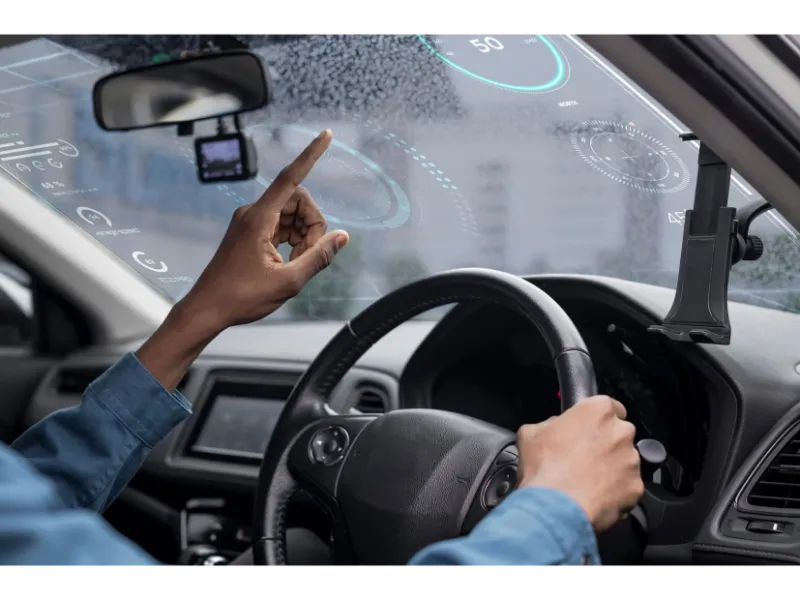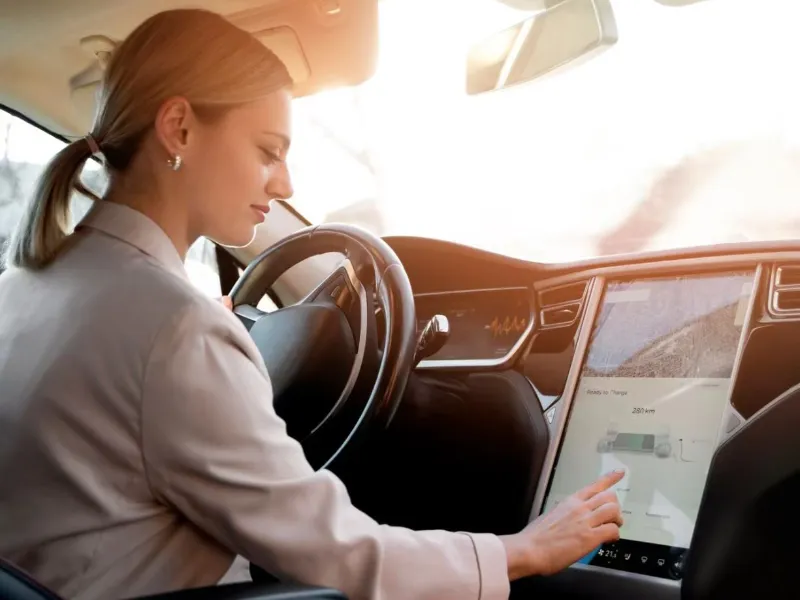- Smart cars integrate advanced technologies like sensors, artificial intelligence, and automatic control to enhance safety, comfort, and human-car interaction interfaces.
- The adoption of smart cars is increasing globally, driven by factors such as consumer interest in new technologies, business efficiency gains, and government initiatives to improve traffic flow and reduce accidents.
- Smart cars offer automatic driving tech, intelligent connectivity, advanced safety, personalised services, and are trending towards tech maturation, deep connectivity, electrification, shared mobility, and enhanced data security.
The innovative and convenient features of smart cars make them stand out in the automotive industry. This also translates to higher prices, yet smart cars remain a focal point for both the industry and consumers. This blog will offer a concise introduction to smart cars, analyse their advantages in the automotive sector, and explore their development trends.
Introduction to smart cars
Smart cars are comprehensive systems that integrate functions such as environmental perception, planning and decision-making, and multi-level assisted driving. They extensively utilise technologies such as computers, modern sensors, information fusion, communication, artificial intelligence, and automatic control, making them a typical high-tech integrated entity. Research on smart cars primarily aims to enhance vehicle safety, comfort, and provide excellent human-car interaction interfaces.
Smart cars enhance typical cars by incorporating advanced sensors (such as radar, cameras, etc.), controllers, actuators, and other devices. Through onboard environmental perception systems and information terminals, they achieve information exchange with humans, cars, roads, etc., enabling vehicles to possess intelligent environmental perception capabilities. They can automatically analyse the vehicle’s safe and dangerous states and navigate to destinations according to human preferences, ultimately aiming to replace human operation.
Also read: How have robots changed manufacturing technology in the healthcare industry?
Currently, consumer interest in smart cars is increasing, especially among younger generations pursuing new technologies and intelligence. In the business domain, enterprises and logistics companies utilise smart cars to enhance transportation efficiency and reduce costs, such as with automated driving trucks and unmanned delivery vehicles. Governments and urban planners are actively exploring how to use smart car technology to improve traffic flow and reduce accidents.
The development of smart cars is also influenced by regulatory and policy environments. Many countries and regions are actively formulating and improving regulations and standards related to smart cars to ensure their safety, reliability, and compliance. These regulations cover aspects such as testing and certification standards for autonomous driving technology, data privacy protection, and adaptability to traffic regulations. Additionally, governments incentivise smart car industry development and popularisation through policies such as tax incentives and research and development subsidies.
The level of smart car adoption varies across different markets, but the overall trend is gradual increase. High-end markets already widely adopt smart cars, and with decreasing technology costs and increasing consumer demand, smart cars are gradually becoming popular in the mass market, becoming one of the mainstream directions in the automotive industry’s development.
Also read: What’s the best cryptocurrency to invest in?
Advantages of smart cars
Automatic driving technology
One of the most significant features of smart cars is their automatic driving technology. Leveraging advanced technologies such as sensors, cameras, radar, and artificial intelligence, smart cars can achieve automatic driving, reducing driver burden under specific conditions, enhancing driving convenience and safety. This technology not only makes driving easier but also significantly reduces the risk of traffic accidents, increasing driving safety.
Smart connectivity features
Smart cars feature intelligent connectivity capabilities, enabling information exchange and data sharing between cars and infrastructure. Through features like intelligent navigation systems, real-time traffic information, remote car control, and in-car entertainment systems, smart cars provide drivers with a more convenient, comfortable, and intelligent driving experience. This connectivity improves driving efficiency and accuracy, while also offering drivers rich information and entertainment choices.

Intelligent safety systems
Smart cars are equipped with advanced safety technologies such as automatic emergency braking systems, lane-keeping assistance systems, blind-spot monitoring systems, and traffic sign recognition systems, helping drivers avoid collisions and accidents, thereby enhancing driving safety. These intelligent safety systems effectively protect drivers and cars, making driving more stable and reliable.
Smart data analysis and services
Smart cars provide personalised driving advice and services to drivers through data collection, analysis, and processing, such as intelligent location navigation, car health monitoring, remote diagnostics, and maintenance, enhancing the driving experience and service levels. This intelligent data analysis and services make driving more intelligent and personalised, meeting drivers’ needs for convenience, safety, and comfort.
Trends in smart car development
Technology maturation
With continuous advancements in sensor technology, artificial intelligence, and machine learning algorithms, automatic driving technology will become more mature and reliable. This will enhance smart cars’ autonomy and safety on roads, further driving their application and popularity in the market.
Deep interconnection
Smart cars will interconnect with more smart devices and infrastructure, including smart homes, smart city infrastructure, etc. This will increase smart cars’ intelligence and adaptability in complex traffic environments, making them safer and more suitable for various driving conditions.
Electrification and energy efficiency improvement
As demand for environmental protection and sustainable development increases, smart cars will increasingly adopt electrification technology to enhance energy efficiency and reduce carbon emissions. The development of electric smart cars will become one of the mainstream trends in the future.
Shared mobility models
Smart cars will integrate with shared mobility models, such as unmanned shared travel services, bringing more efficient and convenient solutions to urban traffic. This will change people’s habits and methods of transportation.
Data security and privacy protection
As the amount of data used by smart cars increases, data security and privacy protection will become important topics for development. Formulating stricter data protection regulations and technical standards will be one of the key directions for future development.

